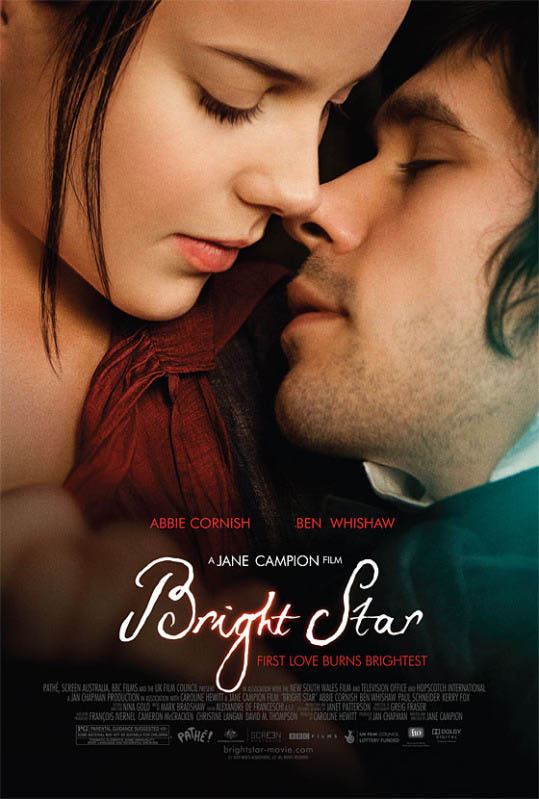Set in the bucolic suburbs of early-19th-century London, as fresh and dewy as a newly mowed lawn, Jane Campions 2009 Bright Star recounts the love affair between a tubercular young poet and the fashionable teenager next door. Fanny Brawne (Australian actress Abbie Cornish) is a self-assured, imperious girl who makes her entrance in a dress of her own design, accessorized with a bright red, yellow-plumed stovepipe hat. Lippy as well as eye-catching, she immediately gets sassy with the self-important scribbler, John Keats (Ben Whishaw), who rents the house across the way. As played by Whishaw, Keats is clearly a protorock stardriven, yet lovable, and always attuned to himself. Mr. Keats and Miss Brawne make a fabulous couple: Its a pleasure to watch and, for the most part, listen to them. Her emphatically smooth brow and his artfully tousled hair seem designed to counterpoint the turbulence beneath their restraint. Keats argued against an art founded on certainty. However, Bright Star has little interest in mysteryor even ambivalence. England 1818 seems like a Fragonard garden, the pastoral height of civilization. Conversation is witty; summer seems eternal. Bright Star creates its own hermetic world. The requisite end titles suggest that Fanny consecrated her life to Keatss memory; in fact, she married and had three children who eventually became rich on the sale of the letters she sensibly saved. Shadowed by the knowledge of loves evanescence, this is a movie of undeniable pathos. But that does not make it sublime. (PG) J. HOBERMAN
Tue., Feb. 1, 7 p.m., 2011




